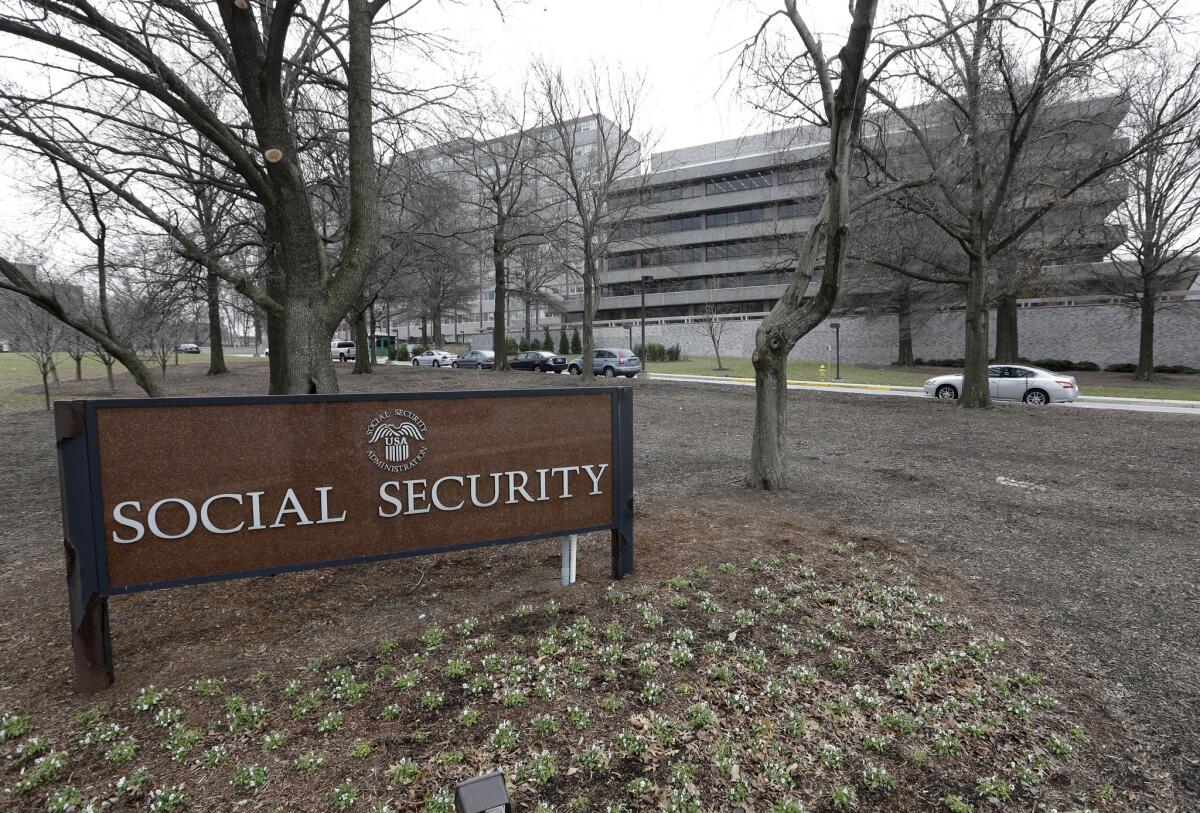A fair-minded pundit falls into a right-wing trap on Social Security

New York Magazine’s Jonathan Chait is usually a judicious and perceptive analyst of the intersection between politics and economics. So it’s disappointing to see him blindly falling in step with a conservative attack on Social Security.
Chait’s error is part of his otherwise astute analysis of the Republican Party’s demographic quandary. He writes that the GOP, by focusing its appeal on older Americans, has become trapped in a “self-perpetuating cycle” in which it attracts mainly old people, and thus represents the interests only of old people. (His theme is based partially on an analysis by David Frum in Foreign Affairs.)
In making his point, Chait cites a recent op-ed in the Wall Street Journal by Andrew Biggs of the American Enterprise Institute, whom he accurately describes as “professionally committed to cutting Social Security.”
The op-ed, Chait says, is about “the need to restore solvency to the Social Security Trust Fund, which certainly ought to be a conservative priority.” He approvingly cites what he calls Biggs’ “harrowing description of Social Security’s long-term deficit, which is real.”
That’s where Chait runs into trouble. Biggs’ description is, if anything, more overwrought than “real.”
Biggs cites a July 15 paper by the Congressional Budget Office, which he says indicates that Social Security’s 75-year deficit “has nearly quadrupled since 2008.”
Biggs is correct, as far as he goes: The CBO’s July 2014 analysis projects the program’s 75-year actuarial deficit at 4% of taxable payroll, compared to 1.06% in its 2008 analysis. But he doesn’t go as far as placing these figures in context.
Biggs also puts his thumb on the scale just a bit; he says these are percentages of “payroll,” but that’s different from “taxable payroll,” since an increasing share of wages is exempt from the payroll tax, which is capped. (This year the cap is $117,000 of wage income.)
Biggs thus skates over the extent to which income inequality is hurting Social Security, and how raising or eliminating the cap might help. Taxable payroll covered more than 88% of all wages in 1984; now it covers only 82.5%. By my back-of-the-envelope calculations, raising it back to the old ratio would bring in at least $50 billion a year more in payroll tax.
Here’s more context: Leaving “taxable payroll” aside, the CBO says its estimate of the Social Security shortfall comes to 1.4% of gross domestic product over the next 75 years. Is that a lot or a little, considering that even 25 years from now an estimated 103 million Americans will be receiving Social Security benefits, compared with 58 million today?
America will have to sustain this population one way or another -- as Edwin Witte, the drafter of Social Security, told Congress in 1935, “there is no way of escaping that cost,” whether through government pensions or some other source. We’re talking about an additional 1.4% of a gross domestic product that is $17 trillion today and will continue to grow.
Saying we’ll have to devote an additional 1.4% of an expanding gross domestic product to Social Security over the next 75 years sounds much less “harrowing” than saying the program’s solvency has suffered a “precipitous decline,” (Biggs’ words) doesn’t it?
More to the point, Biggs skates over a certain economic event that plainly has had an enormous effect on the CBO estimates: the Great Recession. The collapse of Lehman Bros., which is commonly cited as the starting point of the crisis, occurred on Sept. 15, 2008 -- the very month after the CBO’s report that year.
The recession doesn’t make an appearance in Biggs’ op-ed, except for a drive-by reference to “a slow economy” post-2008, which Biggs associates with “President Obama’s time in office.” But it’s proper to observe that the main difference between the world of 2008 and 2011 is the worst U.S. economic crisis since the Great Depression. As the crisis ate away at the balance sheets of most Americans, Social Security wasn’t spared. To ignore its effects, as Biggs seems to, is to fudge the argument.
The recession underlies the greatest irony in Biggs’ piece. He argues that Social Security’s finances are so grim that “progressives” are irresponsible for even suggesting that its benefits should be expanded. But what the recession illustrated is the systematic destruction of middle-class economic security -- exactly what requires Social Security to play a larger role in American’s retirement security. Biggs wants to cut it back.
Chait, as an interlocutor in this debate, appears to lean the wrong way. He suggests that President Obama’s proposal to reduce cost-of-living increases for Social Security recipients (by tying them to the ridiculously overpraised “chained” consumer price index) is a fiscal compromise that should have been acknowledged by conservatives.
To be fair to Chait, it’s a little unclear whether he thinks Obama’s overture on Social Security is the correct policy, or simply one that Republicans should have jumped at. But the bottom line is that it was the wrong policy when Obama first proposed it in 2011, and the wrong policy for the future.
Questions about the future of Social Security boil down to whether U.S. economic policy will continue to favor the rich, or support the middle- and working classes. The GOP has voted with the former, and insupportable rhetoric about a “harrowing” Social Security deficit is only a tool of that campaign.
Keep up to date with The Economy Hub by following @hiltzikm.







